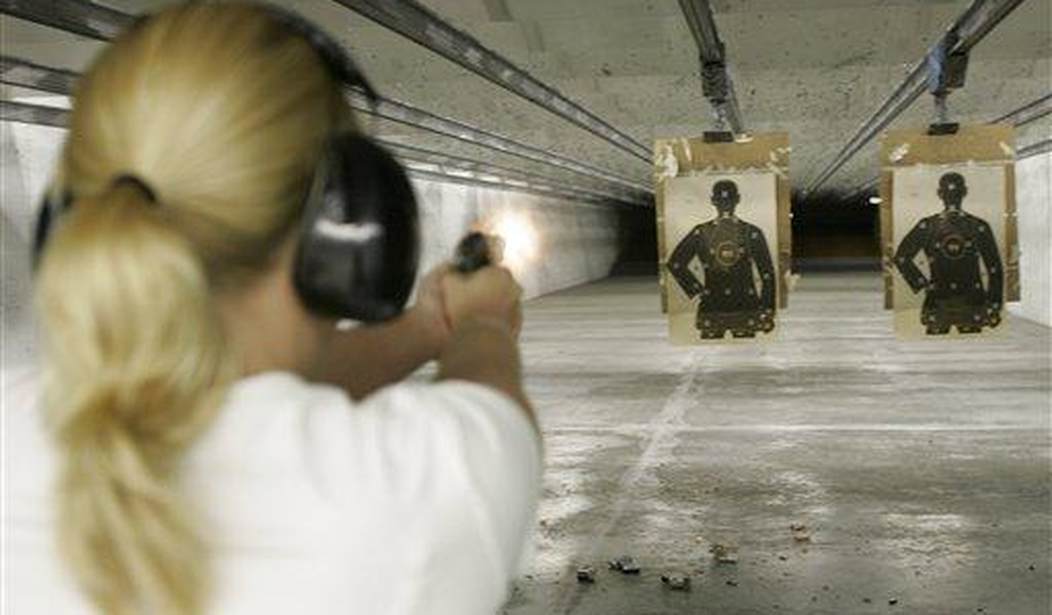One thing the Bruen decision did–something I seriously doubt the mainstream media will acknowledge–is that it removed a potential avenue of corruption. When “may issue” died, it also made it harder for some issuing authorities to get kickbacks in exchange for gun permits.
However, as states tripped over themselves to restrict who could get a permit in the first place, they brought all of that back.
Not every state has done so. California hasn’t managed to do so yet, oddly enough, but their old scheme was bad enough.
Now, the sheriff of San Mateo County is accused of having made things easier for campaign donors.
High ranking staff within the San Mateo County Sheriff’s Office brought concerns to the ABC7 News I-Team of what they say to be abuse of power and broken trust under the leadership of Sheriff Carlos Bolanos.
Under California law, county sheriffs are granted the authority to issue licenses that allow qualified people to carry concealed weapons. Sources within the Sheriff’s Office say they have serious questions about the approval process — is everyone held to the same standards?
It’s a legitimate concern.
Look, I think California still has way too much stupid in their gun permitting process, but in this country, the playing field is supposed to be level. Everyone is supposed to get the exact same shake as everyone else.
That includes when it comes to gun permits.
It’s never acceptable when the connected can get a permit and someone else can’t based on someone’s whim.
But, is this a legitimate gripe?
Concealed carry weapon permits are issued by Sheriff Carlos Bolanos, who lost re-election in June. Bolanos has been the top law enforcement officer in the county since 2016.
…
The ABC7 News I-Team found most people who applied for a license and who contributed to Bolanos campaign got theirs approved. While it’s a small group, some critics are raising questions about potential favoritism in the process.
Public records obtained and analyzed by the I-Team from 2018 through 2021 show among non-donors who applied for a new license, 65 out of 295 were approved. That’s about 22%. Whereas, among donors, 14 out of 16 were approved. That’s around 88%.
That certainly looks shady enough all on its own, but it could just be a coincidence. The report shares anecdotes from those who were denied, but could there have been another reason for the denial?
Maybe the sheriff’s donors were just more upstanding citizens or something.
Stop laughing. I don’t believe it either, I’m just playing devil’s advocate for a second.
Of course, part of the reason I’m skeptical is that it’s not just the numbers suggesting something hinky was happening.
Several people working inside the San Mateo County Sheriff’s Office told the I-Team they’ve felt pressured by Sheriff Bolanos and other high-ranking staff to issue concealed carry weapons licenses to people who were friends or donors to his campaign. The I-Team made several attempts to speak directly with Bolanos, but he declined to go on camera for an interview. He provided us with the following written response denying any allegations of favoritism.
“While I have not verified your numbers, I have never asked for a campaign contribution from a CCW holder in any way that would even remotely suggest a connection between campaign contributions and CCWs. I have numerous campaign contributors, the vast majority of which are do not have CCWs and the vast majority of CCW holders are not campaign contributors.”
The I-Team obtained and analyzed finance records since 2018 and found the approval rate for donors was four times higher than for non-donors.
And honestly, that’s why subjective standards are always going to be a terrible idea for something like a gun permit. When a single agency gets to decide who gets permits and who doesn’t based on subjective criteria, there’s an opportunity for graft and abuse.
We’ve seen it numerous times in both New York and California.
And yet, the moment the Bruen decision came down, anti-gun lawmakers started trying to insert still more subjective criteria into the law, such as checking someone’s social media to see if they were sufficiently upstanding as a citizen, but could easily be manipulated to mean “has the right opinions.”
We’re going to see more of this.








Join the conversation as a VIP Member